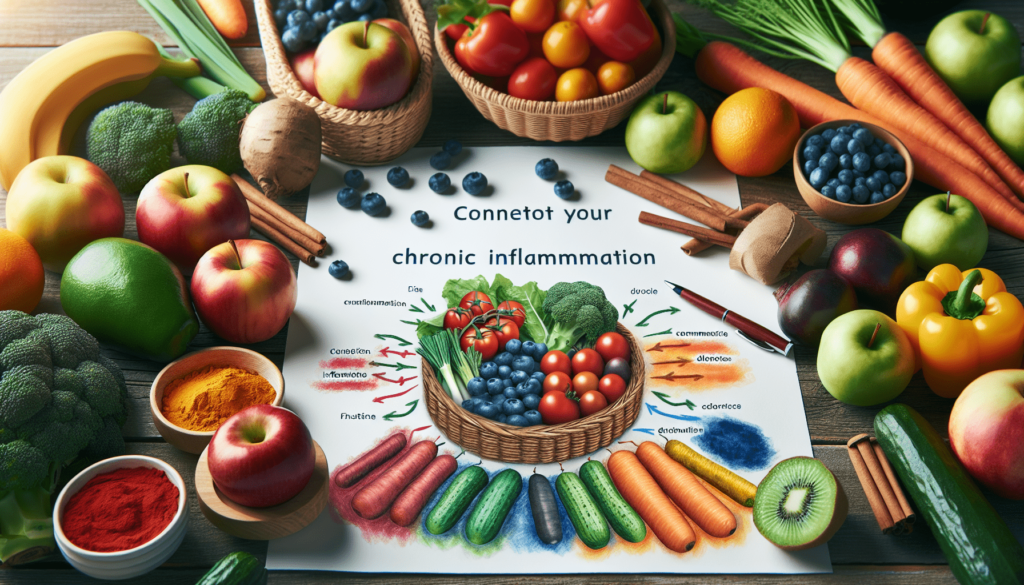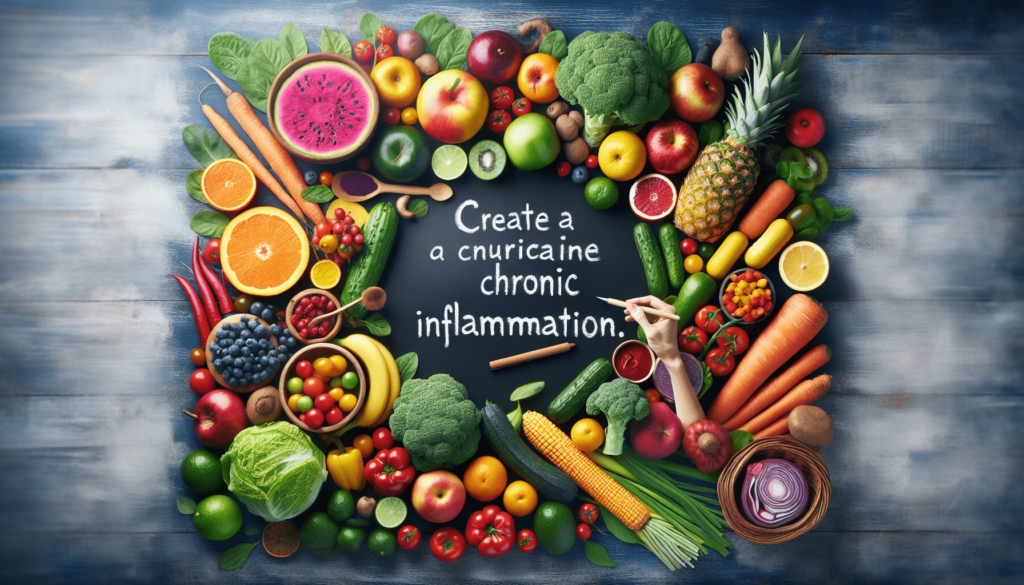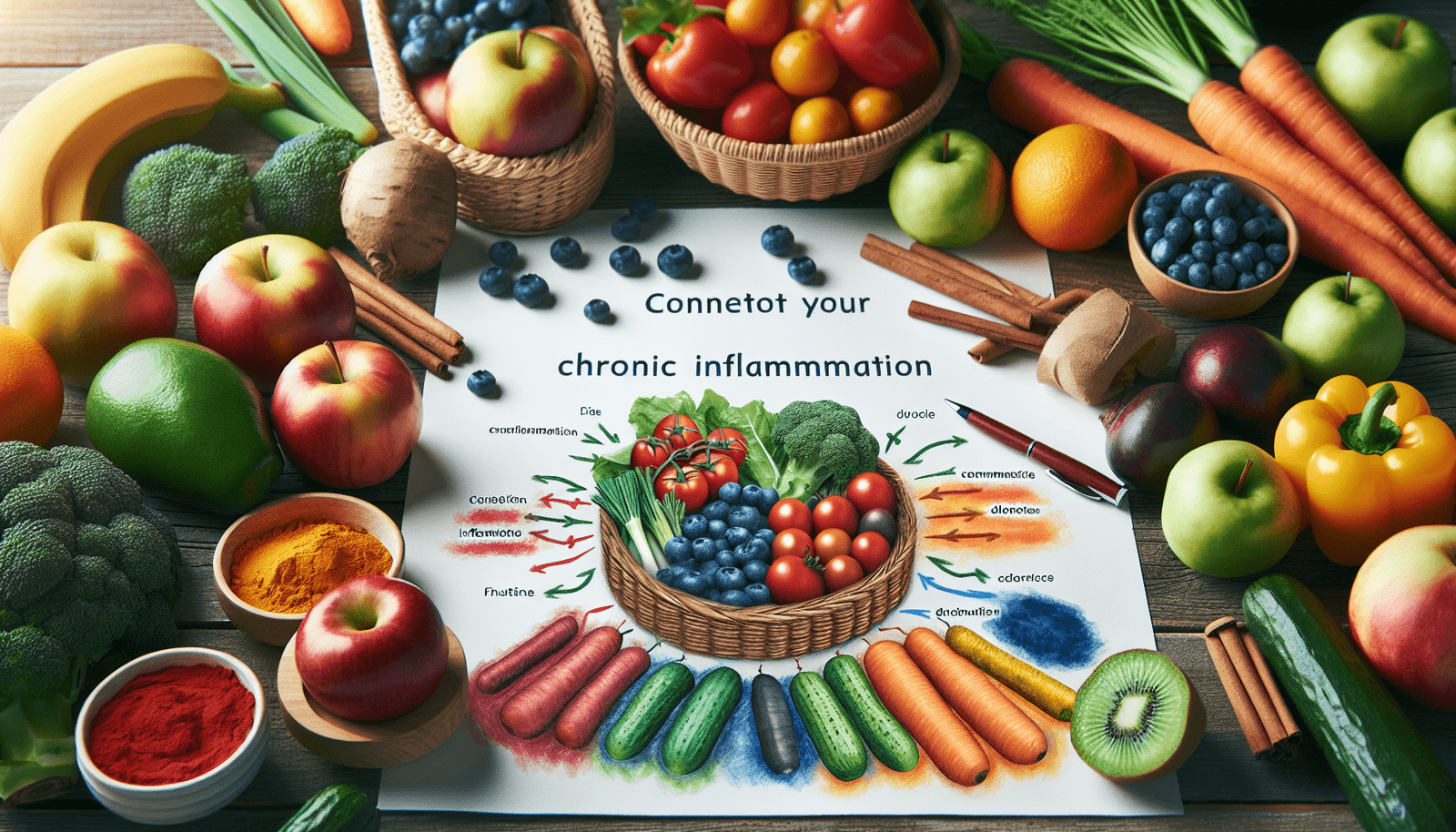Welcome to the fascinating world of chronic inflammation and its connection to your diet! In this article, we will explore how the foods you eat can either fuel or fight inflammation in your body. You’ll learn about the impact of certain nutrients and dietary patterns on chronic inflammation, empowering you to make informed choices for a healthier, happier you. Let’s dive in and discover the powerful link between chronic inflammation and diet!
Chronic Inflammation And Diet: What’s The Link?
Have you ever wondered about the relationship between the food you eat and chronic inflammation? In this article, we will explore the fascinating connection between your diet and inflammation in your body. Let’s dive in and discover how the foods you choose to consume can either fuel or fight inflammation.

Understanding Chronic Inflammation
Before we delve into the link between diet and chronic inflammation, let’s first understand what chronic inflammation is. Inflammation is your body’s natural response to injury or infection, designed to protect and heal damaged tissues. Acute inflammation is a short-term response that helps you recover from injuries or illnesses. However, when inflammation persists over a long period, it becomes chronic and can contribute to various health issues.
The Role of Chronic Inflammation in Disease
Chronic inflammation has been linked to a wide range of health conditions, including heart disease, cancer, diabetes, autoimmune disorders, and neurodegenerative diseases like Alzheimer’s. It can also exacerbate existing health issues and contribute to pain and discomfort in the body. Understanding the impact of chronic inflammation on your health is crucial for making informed decisions about your diet and lifestyle choices.
The Link Between Diet and Inflammation
Now that we have a basic understanding of chronic inflammation, let’s explore how diet influences inflammation in the body. The foods you eat can either promote or reduce inflammation, depending on their nutrient content and overall impact on your body. Making conscious choices about your diet can significantly impact your inflammatory status and overall health.
Inflammatory Foods to Avoid
Certain foods are known to promote inflammation in the body and should be limited or avoided to reduce the risk of chronic inflammation. These foods include:
| Inflammatory Foods | Potential Health Risks |
|---|---|
| Processed Foods | Increased inflammation and oxidative stress |
| Sugar and Refined Carbs | Spikes in blood sugar levels |
| Trans Fats | Promote inflammation and heart disease risk |
| Red Meat | Linked to increased inflammation and disease risk |
By minimizing your intake of these inflammatory foods, you can help reduce chronic inflammation in your body and support better overall health.
Anti-Inflammatory Foods to Embrace
On the flip side, certain foods have anti-inflammatory properties and can help combat chronic inflammation in the body. Including these foods in your diet can help support a healthy inflammatory response and reduce the risk of inflammation-related diseases. Some anti-inflammatory foods to incorporate into your meals include:
| Anti-Inflammatory Foods | Health Benefits |
|---|---|
| Fatty Fish (Salmon, Mackerel) | Rich in omega-3 fatty acids and reduce inflammation |
| Berries | Packed with antioxidants and anti-inflammatory compounds |
| Leafy Greens | High in vitamins and minerals that support immune function |
| Nuts and Seeds | Good source of healthy fats and anti-inflammatory compounds |
By incorporating these anti-inflammatory foods into your diet, you can help combat chronic inflammation and promote better health outcomes in the long run.

The Importance of a Balanced Diet
Maintaining a balanced diet is key to managing chronic inflammation and supporting overall health and wellness. A balanced diet includes a variety of nutrient-dense foods that provide essential vitamins, minerals, antioxidants, and other beneficial compounds that help combat inflammation and promote healing in the body.
The Mediterranean Diet Approach
One dietary pattern that has been widely recognized for its anti-inflammatory properties is the Mediterranean diet. This eating plan emphasizes whole, minimally processed foods such as fruits, vegetables, whole grains, legumes, nuts, seeds, and healthy fats like olive oil. The Mediterranean diet also includes moderate amounts of fish, poultry, and dairy, while limiting red meat and processed foods.
Adopting a Mediterranean-style eating pattern can help reduce inflammation, support heart health, improve cognitive function, and promote overall well-being. By following the principles of the Mediterranean diet, you can enjoy delicious, nutrient-rich meals that nourish your body and mind.
Practical Tips for Reducing Inflammation Through Diet
Making changes to your diet to reduce chronic inflammation doesn’t have to be complicated or overwhelming. Small tweaks to your eating habits can have a significant impact on your inflammatory status and overall health. Here are some practical tips to help you get started:
Focus on Whole Foods
Embrace whole, nutrient-dense foods like fruits, vegetables, whole grains, nuts, seeds, and lean proteins. These foods are rich in vitamins, minerals, antioxidants, and fiber that support a healthy inflammatory response in the body.
Limit Processed Foods
Processed foods are often high in sugar, unhealthy fats, and additives that can promote inflammation in the body. Opt for whole foods whenever possible and prepare meals from scratch to better control the ingredients you consume.
Choose Heart-Healthy Fats
Include sources of heart-healthy fats like avocados, olive oil, fatty fish, nuts, and seeds in your diet. These fats have anti-inflammatory properties and support overall heart health and well-being.
Stay Hydrated
Drink plenty of water throughout the day to stay hydrated and support your body’s natural detoxification processes. Proper hydration is essential for reducing inflammation and promoting optimal health.
Mindful Eating Practices
Practice mindful eating by savoring your meals, chewing slowly, and listening to your body’s hunger cues. Being present during meals can help you make healthier food choices and prevent overeating, which can contribute to inflammation.
Conclusion
In conclusion, the link between chronic inflammation and diet is undeniable. The foods you eat play a significant role in either fueling or fighting inflammation in your body. By making informed choices about your diet and lifestyle, you can help reduce chronic inflammation, support overall health, and reduce the risk of inflammation-related diseases.
So, next time you sit down to eat, remember that your food choices can either contribute to or combat chronic inflammation in your body. Choose wisely, nourish your body with anti-inflammatory foods, and take proactive steps towards better health and well-being. Your body will thank you for it!

